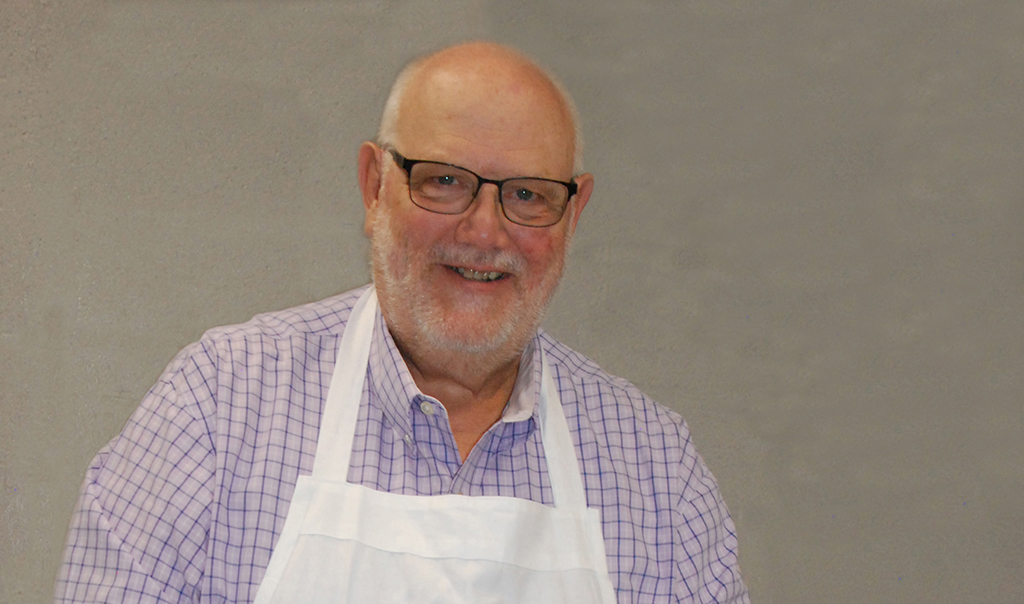
Creating a Ripple Effect
February 18, 2025
Written By Neal Fandek
Keith Dietzschold is proving one drop of education can have far-reaching ripples. He serves as the state director of agriculture, food and natural resources for the Missouri Department of Elementary and Secondary Education (DESE); the state advisor to the Professional Agriculture Students (PAS) organization; and Missouri’s FFA advisor. Because of the extent of his impact, he was recently named the nation’s outstanding state supervisor by the National Association of Supervisors of Agricultural Education, which seeks to advance agricultural education nationwide. The prestigious award recognizes members who have made outstanding contributions to agricultural education.
In his letter of support for Dietzschold, former Missouri FFA president Paxton Dahmer wrote, “While (Dietzschold’s) direct interactions with students may be limited, without a doubt his direct influence reaches each student each year. One of my favorite questions Mr. Dietzschold asks is, ‘What does Missouri FFA do for the average student?’ That type of thinking drives decisions that support every student… He’s been a constant source for life advice, motivation and a listening ear.”
While his award has made a big splash in the agricultural education community, Dietzschold sees it as the result of a ripple effect.
When a raindrop hits water, it causes ripples to radiate from the point of impact. Being that “raindrop” is exactly what Dietzschold has done day in and day out for more than 40 years, first as an agricultural educator and FFA advisor in Chillicothe, Cameron and Lathrop, then in positions of increasing responsibility within agriculture education organizations, culminating in the DESE position he holds today. That means daily work with teachers, postsecondary students and organizations, FFA, the Missouri Young Farmers/Young Farm Wives Association, Missouri Vocational Agriculture Teachers Association, as well as legislative and corporate partners. He admits it’s a challenge.
“How do we continue to be that raindrop that spreads knowledge, literacy and awareness of agricultural education and practice?” he says. “How do we spread that word, especially to those removed or not familiar with production agriculture?”
That’s not easy in an increasingly urban society with less understanding of farming in each successive generation. Dietzschold says three components are key: classroom and laboratory instruction; supervised agricultural experiences, where students gain work-based learning and hands-on experience; and leadership development through FFA in high school, PAS at postsecondary institutions, and Young Farmers for adults in agriculture.
How is Missouri doing? The numbers don’t lie:
- Missouri has 365 FFA chapters, up from roughly 290 in the mid-2000s.
- In 2024, 29 FFA chapters received a three-star rating, the highest possible rating.
- Missouri has 27,044 FFA members, the 11th-highest participation in the country.
- In 2024, 663 Missouri FFA members received the American FFA Degree, the most of any state. This is the highest degree bestowed on any FFA member. Less than one-half of 1% of FFA members nationally receive it.
Dietzschold says the key to current and future success is simple and complex: meeting students at their level of agricultural knowledge, no matter how slight it may be.
“We have learned over the past 15 to 20 years to meet people where they are,” he says. “That means learning more about you and what you want (in agricultural education), then sharing about me, our knowledge and concerns.”
Although growth in FFA membership over the past decade or so has been in smaller school districts in south-central and southeastern Missouri, Dietzschold sees promise in new and innovative programs in urban and suburban areas, such as one at University City High School in St. Louis. This program turns shipping containers into hydroponic growing stations for students to grow plants vertically indoors without any soil. The crops get their nutrition from water and light energy from LEDs. There are other, equally innovative programs in Springfield, Glendale, Hillcrest, Blue Springs, Independence, Kearney, Belton and Lee’s Summit.
This is not just putting dirt into the curriculum. It’s also raising awareness of traditional production agriculture and corporate opportunities to pique the attention of today’s often-distracted students. Agriculture is no different than society, beset by the accelerating pace of technology.
“I’d say the No. 1 thing we have accomplished is to prepare teachers and students by infusing technology, especially new technology, into the curriculum,” Dietzschold says. The ultimate goal, he says, is “to move agricultural education forward in the state of Missouri while respecting the traditions of the last 100 years, moving forward into a new age.” And that will be quite the ripple effect.
Agriculture teachers are vital to developing their students’ understanding and appreciation for the agricultural industry. In recognition of their important role, MFA Oil is profiling the amazing work ag teachers do to prepare the next generation of leaders in agriculture.

